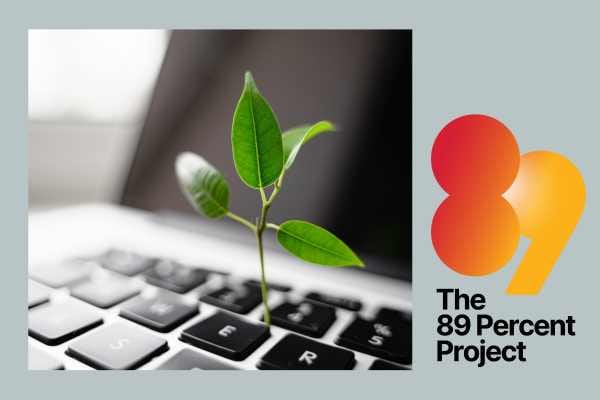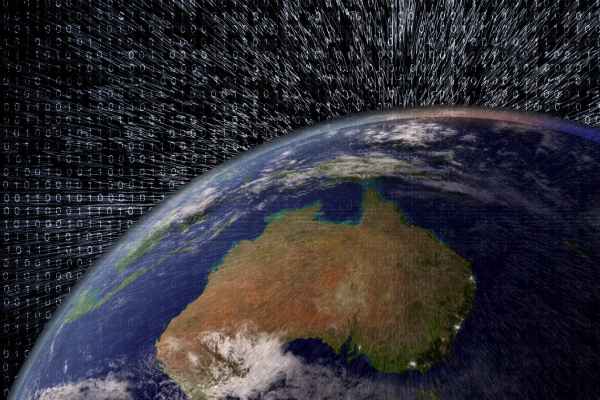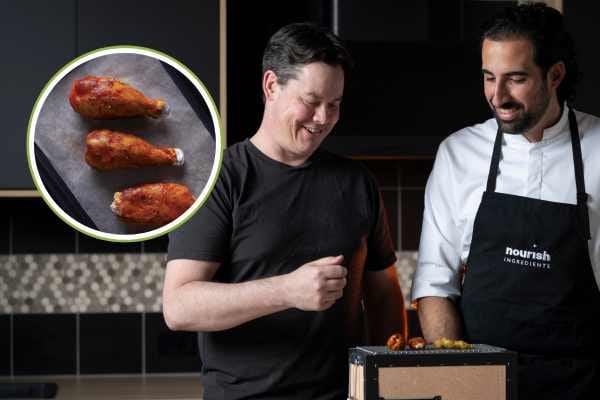Earthshot prize: meet the winners
£1m apiece was awarded to propel these five planet-saving creations towards greater impact.
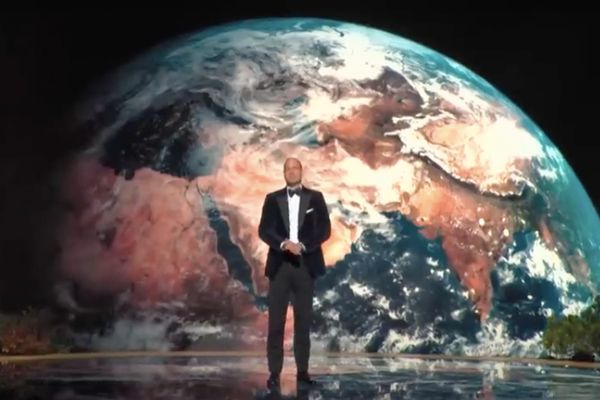
£1m apiece was awarded to propel these five planet-saving creations towards greater impact.
Seaweed packaging, a new way to turn CO2 into rock, cleaner-burning stoves for Kenya, a solution for small farmers facing climate change in India, and an indigenous program to save Australia’s Great Barrier Reef – these are this year’s Earthshot Prize winners.
The winners were announced by The Prince of Wales on Friday December 2 at an awards ceremony held in Boston in the US. It’s the second year for Earthshot with the first ever awards held last year.
“I believe that the Earthshot solutions you have seen this evening prove we can overcome our planet’s greatest challenges,” Prince William said at the ceremony.
"I believe that the Earthshot solutions you have seen this evening prove we can overcome our planet’s greatest challenges."
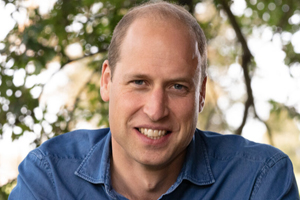
“Alongside tonight’s winners and finalists, and those to be discovered over the years to come, it’s my hope the Earthshot legacy will continue to grow, helping our communities and our planet to thrive,” he added.
Each entrant was assessed on their potential to create game-changing impact around the world, and their ability to help reach Earthshot goals while also positively impacting people, communities, and the natural world.
All 15 finalists will receive tailored support from The Earthshot Prize Global Alliance, a network of world-leading philanthropists, NGOs, and private sector businesses around the world who will help scale their solutions.
Here’s a closer look at the winning five:
NOTPLA
London-based start-up Notpla, founded by Pierre Paslier and Rodrigo Garcia Gonzalez, has created an alternative to plastic packaging that’s made from seaweed and plants.
It is totally natural and entirely biodegradable, its makers say, and Notpla can be used to create a range of packaging products such as a bubble to hold liquids, a coating for food containers, and a paper for the cosmetic and fashion industry.
At the London Marathon in 2019, 36,000 Notpla-made Oohos filled with Lucozade, were handed to runners.
This year, Notpla has made over 1 million takeaway food boxes for Just Eat Takeaway.com, with the potential to replace over 100 million plastic coated containers in Europe in the future.
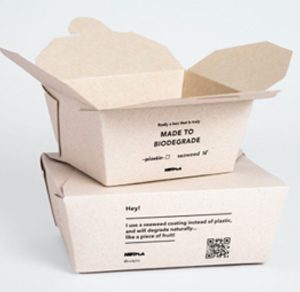
The company is continuing to develop new formats and solutions, with flexible films and rigid materials in the pipeline.In other benefits, seaweed farmed for its production captures carbon twenty times faster than trees, and seaweed farming creates new opportunities for fishing communities.
“Fourteen million tonnes of plastic enter our oceans each year. We founded Notpla when we discovered the solution lies in our oceans too,” Paslier said.
“We are already replacing plastic that plagues our seas and working with seaweed farms that give back to the environment and the local economy. Thank you for recognising us as we take our next big step and eliminate single-use plastic for good.”
44.01
Capturing CO2 from the atmosphere is now considered an essential element in the global effort to slow climate change. While many are working on technology to capture it, storing millions of tonnes of CO2 cheaply and safely remains a challenge.
One of those working on this problem is 44.01, which was founded by childhood friends in Oman.
Named after the molecular weight of carbon dioxide, 44.01 removes CO2 permanently by mineralising it in peridotite, a rock found in abundance in Oman as well as in America, Europe, Asia and Australasia.
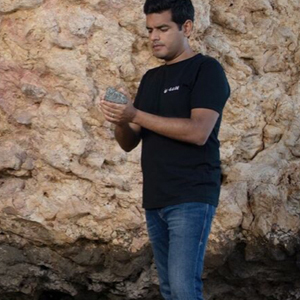
Peridotite mineralisation is a natural process, but in nature it can take many years to mineralise even a small amount of CO2. 44.01 accelerates the process by pumping carbonated water into seams of peridotite deep underground.
Unlike carbon storage, which involves burying CO2 underground in disused oil wells or aquifers, mineralisation removes CO2 more permanently, reducing the need for long-term monitoring or insurance, and making the process more cost-effective, scalable and safe.
44.01 said it was also providing new employment to engineers and geologists working in the fossil fuel industry.
“The answers to the problems our planet faces can often be found in the natural world,” said its founder & carbon general, Talal Hasan.
“At 44.01, we have found a natural process that removes carbon and we’ve accelerated it. We believe this process is replicable globally and can play a key role in helping our planet to heal. Thank you to The Earthshot Prize.”
KHEYTI
This Greenhouse-in-a-Box solution, created in India, aims to help smallholder farmers to reduce costs and increase yields in the face of climate change.
Plants in the greenhouse require 98 per cent less water than those outdoors and yields are seven times higher, its makers say. Estimated to be ninety per cent cheaper than standard greenhouses, Kheyti says they are more than doubling farmers’ incomes, and they use less water and fewer pesticides too.
India is home to 100 million small-hold farmers and the nation is one of the most climate-affected in the world.
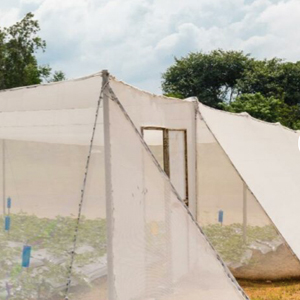
This year it reportedly recorded its earliest – and one of its fiercest – heatwaves on record.
So far, around 1,000 farms have a Kheyti greenhouse. By 2027, Kheyti wants 50,000 farmers to have its Greenhouse-in-a-Box.
“We are honoured to be recognised by The Earthshot Prize this year,” co-founder & CEO, Kaushik Kappagantulu said.
“The world depends on its small-hold farmers and yet their lives are amongst the hardest on earth. Our Greenhouse-in-a-Box is empowering farmers in India today. The steps we have already taken at Kheyti are now building to change farmers’ lives at scale.”
MUKURU CLEAN STOVES
Across Africa, 700 million people use traditional cookstoves which emit harmful chemicals and lack safeguards.
Kenyan startup, Mukuru Clean Stoves, has developed cleaner burning stoves to reduce indoor pollution and provide a safer way to cook.
Rather than burning dangerous solid fuels, Mukuru Clean Stoves use processed biomass made from charcoal, wood and sugarcane. This burns cleaner, creating 90 per cent less pollution than an open fire and 70 per cent less than a traditional cookstove, according to its maker. The stoves are cheaper too, costing just $US10 and halving ongoing fuel costs.
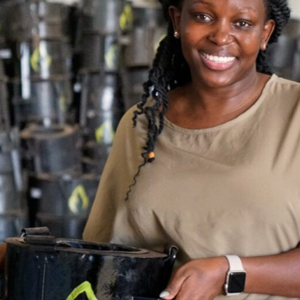
For years founder Charlot Magayi sold charcoal for fuel while growing up in Mukuru, one of Nairobi’s largest slums. The charcoal, however, was the cause of regular respiratory infections.
Then, in 2012, her daughter was severely burnt by a charcoal-burning stove. She founded Mukuru Clean Stoves in 2017 to provide a better solution.
Today, 200,000 people in Kenya use Mukuru Clean Stoves, saving $10 million in fuel costs and saving lives. In rural areas, where young girls often spend three hours a day collecting firewood, they also save precious time. As a female-founded business with mostly female staff and distribution agents, Mukuru says it is empowering women to make a living by making a difference.
Magayi plans to create an even cleaner stove that burns ethanol. In three years, she hopes to reach one million customers, and in ten years, she plans to reach ten million people all over Africa.
“Mukuru Clean Stoves began as a solution to a problem that I had felt personally in my own life,” says Magayi.
“Today, we have an opportunity to transform the lives of millions, with cheaper, safer and more sustainable cookstoves and fuels. It is a privilege to be recognised by The Earthshot Prize as we embark on the next step in our journey.”
INDIGENOUS WOMEN OF THE GREAT BARRIER REEF
The Great Barrier Reef in the Coral Sea off the coast of Queensland is under constant environmental threat. This female-led program combines 60,000 years of indigenous knowledge with digital technologies to protect land and sea.
The region’s indigenous rangers combine ancient knowledge, passed down from generation to generation, with modern tools like drones that monitor coral changes, forest fires and land degradation.
Over the past four years, the Queensland Indigenous Women Rangers Network has been building the next generation of rangers, training over 60 women by sharing knowledge and telling stories.
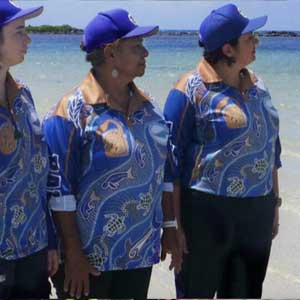
As custodians of the land, the rangers have also protected sites of great cultural and spiritual significance.
It is hoped that with greater support, indigenous women rangers could span the planet, helping to repair ecosystems from Hawaii to Nepal and Tanzania.
“This place has always been our home, but today we risk losing it and the unique culture that has existed here for millennia,” said managing director, Larissa Hale.
“Our Women Rangers Network exists to protect our home and continue our traditions. We have made big first steps, but we have a long way still to go. Thank you to The Earthshot Prize, for supporting us.”
The Earthshot backstory:
Prince William created the annual Earthshot awards to fund projects that aim to save the planet. The prize seeks to discover and help scale innovative solutions that can put the earth on a trajectory to a stable climate by 2030 in five areas: protecting and restoring nature, cleaning the air, reviving the oceans, building a waste-free world and fixing the climate. This year’s winners were picked from 15 finalists by a panel that included Prince William, Sir David Attenborough, actress Cate Blanchett, footballer Dani Alves, Fijian activist Ernest Gibson and singer Shakira. Earthshot was inspired by President John F. Kennedy’s Moonshot challenge which, in the 1960s, sought to put a person on the moon within a decade. Each year for the rest of this decade, five winners will be chosen. Nominations for the 2023 Earthshot prize have already opened.
source: Earthshot Prize


